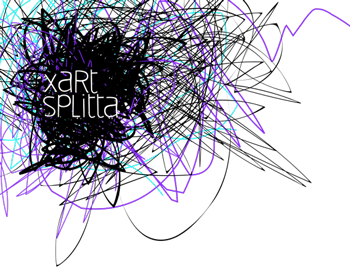Edna Bonhomme is an anti-colonial activist, historian, writer, curator and educator. Edna holds a PhD in History/Science History from Princeton University and her work examines disease, gender, surveillance and embodiment. Her multimedia pieces have been published in gallery spaces in Prague and Vienna. As a Black, Queer, Feminist and postcolonial subject, her activism and projects are guided by diasporic futurisms, herbal healings and bionics.
Clementine Ewokolo Burnley was born and raised in the former German colony of Cameroon. Today she lives in Berlin and Limbe, Cameroon. She is a writer, poet, activist and mother. Since 2000 Clementine has worked as a (critical) development cooperation researcher and consultant in England, Italy and Germany. In her life and work she constantly learns how to overcome damages suffered through discrimination from the people around her.
Jihan Jasmin Dean is a social scientist, education worker and one of four administrators of the “Move on up!” mailing list, a People of Colour space. Since 2018 she has been managing director of a Thuringian youth association (www.thueringen.bdp.org). She is working on a dissertation on “Racialisation, Subjectivation and Alliance Policy in Germany after 1989”. Her dissertation deals with the communities of Rom*nja and Sinte*zze, Muslim migrants, Black people and Jewish women in the first years after the fall of the Berlin Wall. What internal processes did these communities go through back then? How did they relate to each other and what were the approaches to alliances between them? Jihan Jasmin Dean is convinced that dealing with community history(s) can contribute to a better understanding of current processes.
Saraya Gomis Teacher and learner.
Moshtari Hilal studied Middle-Eastern-Studies and politics in Hamburg and focused on postcolonial theory and feminist intellectual history. With her body of often semi-autobiographical work, she aims to generate an understanding for the complexity of marginalized identities and offer an alternative visual language. Her portraits explore the possibilities of beauty and storytelling within a political environment through faces. The work of Moshtari Hilal has been on display in Germany, Afghanistan, Denmark, Sweden, USA, Canada and has also been printed in local and transnational publications such as The Carton, OOMK, Missy Magazine, das Kursbuch and Das Wetter.
Christiane Hutson became visibly ill as a young adult Black Hetera of Color in the family founding phase. Against this background, the considerations from Postcolonial Theory, Disability Justice activism, Queer and Gender Studies, as well as from Disability Studies provided her with framesworks, reference points and perspectives, which she used in two ways: On the one hand (purely practical) to enforce her first pregnancy. On the other hand, to be able to give the experiences of disabled and sick People of Colour a place where these experiences can be shared. Christiane Hutson is concerned with this place when she illustrates the interweaving of racism and ableism in her articles, lectures, teaching events and workshops.
Zuher Jazmati is an activist, campaigner and DJ. He was born in Berlin and grew up in Saudi Arabia. He received his B.A. in Marburg and Cairo and his M.Sc. in Empires, Colonialism and Globalisation from the London School of Economics (LSE). He is currently a campaigner with the German-Syrian NGO Adopt a Revolution and a board member of TakeOver – Verein für intersektionale Kampagnenarbeit. His specialties are (the intersections of) anti-Muslim racism, queer refinement, decolonisation and colonial continuities.
Katja Kinder is a Black German educationer. She is deputy managing director of RAA Berlin and co-founder of ADEFRA. She has been working as a freelance empowerment trainer and transcultural conflict mediator with an intersectional feminist and racism-critical perspective for over 20 years.
Saideh Saadat-Lendle heads the anti-discrimination and anti-violence department of Lesbenberatung Berlin e.V. – LesMigraS. She is a psychologist, diversity trainer and freelance lecturer specialising in multiple discrimination, racism, gender/gender, sexual lifestyles, language and discrimination.
Saboura Naqshband studied Arabic Studies, Political Science and Social and Cultural Anthropology in London, Cairo and Berlin. In Berlin and throughout Germany she works as an anti-discrimination and empowerment trainer, mainly for associations of and for LSBTI*Q refugees and migrants. She works mainly on the topics of (anti-Muslim) racism, Muslim feminism and religion, gender and sexuality and translated Lana Sirri’s 2017 book “Introduction into Islamic Feminisms” into German.
Onur Suzan Nobrega is lecturer at the Institute of Sociology, Focus Culture and Migration at Goethe-University Frankfurt. She gained her PhD from Goldsmiths, University of London in Media and Communications with a thesis entitled »Postmigrant Theatre and Cultural Diversity in the Arts: Race, Precarity and Artistic Labour in Berlin«. Previously to and alongside academia, she has worked as journalist (die taz), tour manager for the music project Brothers Keepers, curator for the postmigrant theatre Ballhaus Naunynstrasse Berlin and as project partner, organizer and lecturer for the Museum of Contemporary Art and Kunsthalle Mannheim’s Community College for the field of the arts, media and creative industries.
Rena Onat is an art and media scholar and is interested in Queer of Colour criticism in visual culture. She positions herself as a Femme of Colour of Turkish origin and is currently working on her doctoral thesis on “Strategies of resistance, empowerment and survival in the works of queer female artists of color in the German context”. She is lecturer at the Alice Salomon Hochschule Berlin and was until May 2019 research assistant at the Institute for Media Studies at the HBK Braunschweig and before that research assistant at the Helene-Lange-Kolleg Queer Studies and Intermediality at the University of Oldenburg.
Isidora Randjelović is a social pedagogue and social worker. She is director of the feminist Romnja* Archiv RomaniPhen. She writes about the interdependence of race and gender as well as movements and self-organisation and is involved in IniRromnja. Isidora Randjelović is lecturer at the Alice Salomon University of Applied Sciences Berlin and board member of RomaniPhen e.V.
